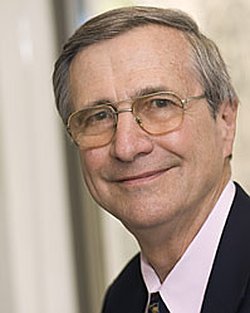
Dr. Peter Kreeft on the Benefits of Classical Education
Peter Kreeft (professor of philosophy at Boston College) has written several celebrated books on theology, philosophy and apologetics (Socratic Logic, Practical Theology, Summa of the Summa, Handbook of Christian Apologetics—just to name a few.) He has also written the foreward to the Liberal Arts Tradition: A Philosophy of Christian Classical Education (by Kevin Clark and Ravi Jain). Here is an excerpt from his foreward in which he argues for the classical education in his ironic way. I particularly enjoy the way he turns the typical objections to classical education on their head and shows how they are indeed arguments for classical education. Enjoy—and pick up the Liberal Arts Tradition if you have not read it yet. It is well worth the read as Kreeft suggests. You can peruse Kreeft’s books here and learn more about the Liberal Arts Tradition here.
Foreward to The Liberal Arts Tradition
by Peter Kreeft
Plato said a lot of foolish things in his Republic about an ideally just society, but one very central thing that he said in that work was not foolish at all but very wise: the single most important thing that makes a society good, and just, and wise, and happy is education.
Do you want the very best middle and high school education for your children? Then read this book and find a school that believes and practices its principles.
This book is about a complete education in the “liberal arts,” which are the fundamental subjects that students will need as a foundation to build on for the rest of their educational life, no matter what specialized subjects they take later, in college and graduate school. Most important of all, these are the subjects we need to know for life, for a life that is free and not slavish (thus the term “liberal education”).
Just look at this book’s table of contents to see how much is included in this. It’s more than the old “seven liberal arts,” but it builds on them.
It is an education of the whole person, not just the calculating intellect. But it is not less “intellectual” for that, but more so.
It is based on the “tried and true” tradition of liberal education invented by the greatest minds in history. Here you will meet Socrates, Plato, Aristotle, Christ, Augustine, Aquinas, Pascal, C.S. Lewis. It is the best of the old and the best of the new. It is not the “politically correct” education offered by our ever-declining and continually dumbed-down state schools. In fact it compares to that as a Jane Austen novel compares to a pothead’s addled dream.
As our culture becomes more decadent, spiritual survival reactions to it become tougher and tighter, just as the body’s white corpuscles organize to combat an infection. As bad gets worse, good gets better. And the contrast gets clearer and stronger.
This is not “mainstream” education. And the educational establishment feels deeply threatened by it, and offers at least eight silly objections to it that are really advertisements for it.
- It’s “divisive.” It’s not what everyone else is doing. It marches to a different drummer. It cultivates excellence rather than conformity. Yes it does. And this is actually sometimes used as an objection rather than as a selling point!
- It’s old, outdated, unfashionable. Yes it is, like honor, courage, integrity, and honesty. It doesn’t try to tell the truth with a clock; it doesn’t practice chronological snobbery. In an age which has embraced every novelty, the true rebel is the traditionalist.
- It’s not in line with modern philosophies: skepticism, cynicism, subjectivism, relativism, naturalism, materialism, reductionism, positivism, scientism, socialism. That’s exactly right. It’s not. It’s countercultural. It harnesses teenagers’ natural proclivity to rebel and turns that force against “the bad guys” who are now the “establishment” instead of against “the good guys.”
- It’s “judgmental.” It believes there really is good and bad, true and false. The typical modern education is judgmental only against being judgmental, and skeptical of everything except skepticism.
- It’s small. It’s private. It’s grassroots. It’s implemented mainly in small schools, not big ones. This is true, and it’s another plus rather than a minus. “Small is beautiful.” The bigger the school, the more standardized it has to be and the more the person tends to get lost in the system and get identified with his or her race, economic class, gender, sexual orientation, or political party.
- It seeks the truth for its own sake, not primarily for pragmatic uses. It aims at wisdom, not wealth. It makes its graduates philosophers instead of millionaires. This is also true. But it’s not a fault. As Chesterton says, “Man’s most practical need is to be more than a pragmatist.”
- It’s not specialized. It doesn’t include courses on underwater basket weaving or pickling and fermentation (which was actually a major at Ohio State). It doesn’t teach you clever ways to outguess Microsoft word, or the government, or lawyers, or your professor, or the standardized tests. It just teaches you how to think and how to live. But businesses, law schools, and government agencies don’t want specialist drudges and drones; they want people who can read and write and think logically and creatively.
- It’s religious. It’s Christian. It doesn’t pretend that the most important man who ever lived never lived, as our public education now does. It assumes that the supernatural is not the enemy to the natural, that “grace perfects nature rather than demeaning it,” as light perfects all colors.
This little book is a description of that educational program. It’s precious—because children are precious.







